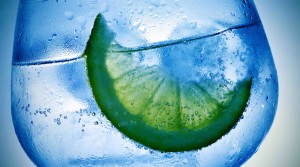New guidance for labelling of gin and gin products welcomed

The new guidelines on gin encompass everything from the use of place names to the listing of allergen information to the packaging material used.
The Labelling of Gin Produced in Ireland outlines what’s required to ensure that gin produced in Ireland is labelled correctly in line with legislative requirements. The guidance was developed to provide greater clarity for the industry to ensure that products are not mislabelled or marketed in such a way as to mislead consumers.
The FSAI has similar guidance for the labelling of Irish whiskey. This forms part of the FSAI’s role in providing advice to food businesses regarding food law compliance in order to safeguard consumers’ health and interests.
This new guidance was produced to ensure that the industry clearly understands its legal responsibility and complies with the EU regulations governing their labelling according to FSAI Chief Executive Dr Pamela Byrne, who stated, “While gin is defined in the legislation as a ‘juniper-flavoured’ spirit drink produced by flavouring ethyl alcohol of agricultural origin with juniper berries, a ‘juniper flavoured spirit drink’ is a separate spirit drink, which is produced by flavouring ethyl alcohol of agricultural origin or grain spirit or grain distillate or a combination thereof with juniper berries. The minimum alcoholic strength by volume of a juniper-flavoured spirit drink is 30% while the minimum alcoholic strength of a gin is 37.5%.
“Therefore, it’s important to remember that these ‘juniper-flavoured spirit drinks’ cannot be labelled as ‘gin’. Similarly, the use of the word ‘distilled’ must be used carefully as prescribed in the guidance, as must geographical descriptors.
Around 50 brands of gin are now produced in Ireland and the size of the gin industry here has expanded exponentially in recent years with some years witnessing more than 30% growth in sales.
“While it is natural that marketing specialists will use every means at their disposal to gain a competitive edge over their rivals” she continued, “this must not be achieved at the expense of consumers’ trust. Food law is in place to ensure that consumers are not misled by any claims on food or drinks. We hope that our guidance will assist the industry to comply with the complex legislation in this area so that consumers can be confident that the gin produced in Ireland is accurately and truthfully described on the label or in associated marketing materials,” she concluded.
The new guidance has been welcomed by Drinks Ireland|Spirits, which represents Ireland’s gin industry.
Concerns had been raised that some products, which are similar to gin, have been marketed to appear as gin.
The new guidance states that for a drink to be labelled as Irish gin, a certain production process must be followed. Besides water and alcohol, the only other raw materials that can be used for making gin are natural flavourings referred to as botanicals. The predominant flavour in gin is always juniper.
Additional flavourings or plants with flavours may also be used to give variants like pink gin.
These guidelines encompass everything from the use of place names to the listing of allergen information to the packaging material used. They will further support producers in complying with EU regulations.
“In the domestic market, gin has maintained its position as the fastest-growing spirit and Irish gin in particular has become increasingly popular,” said the Chair of the Irish Gin Working Group in Drinks Ireland|Spirits David Boyd-Armstrong, Co-Founder of Rademon Estate Distillery, the producer of Shortcross Gin, “There are now many Irish gin producers and numerous Irish gin brands on the island of Ireland and consumers at home and abroad are responding positively to the diverse and distinct tastes being created here.
“However, as Irish gin grows in popularity, there’s increased chance that the consumer may be misled on what it is that they’re consuming. This can undermine the high-quality products being created by our Irish gin industry. Drinks Ireland and its gin-producing and brand-owning members welcome the new FSAI guidance which we believe will be good for the consumer and good for the industry.”








